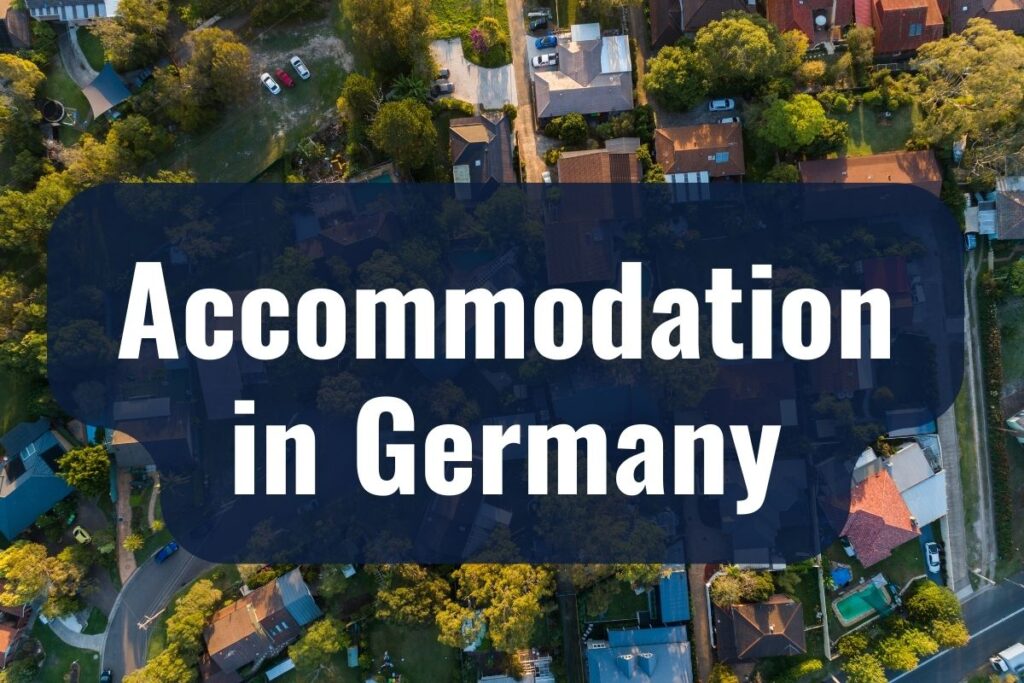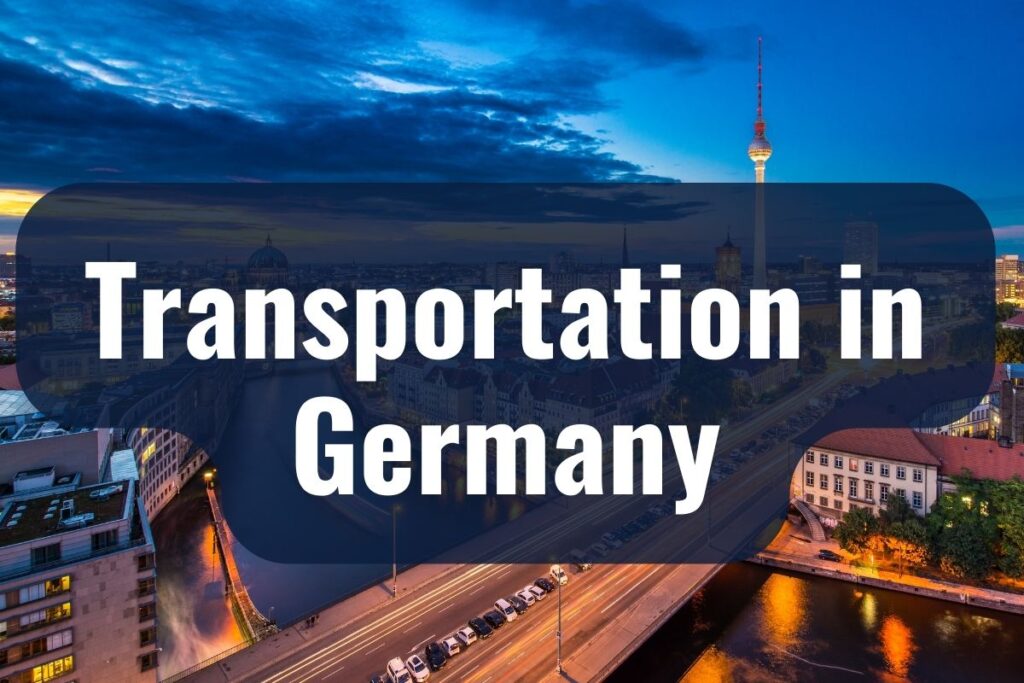Welcome, new residents, to the heart of Europe, Germany! We’re delighted you’ve chosen this vibrant, diverse and beautifully historic nation as your new home. Whether you’re new to Germany, and here for studies, work or long-term vacation, Germany promises a rich and rewarding experience that combines the best of old-world charm and cutting-edge innovation.
This article is your friendly guide to navigating this new chapter in your life. It aims to equip you with the necessary information to get settled comfortably in Germany, and to help you understand, appreciate, and blend seamlessly into German lifestyle. From the idiosyncrasies of daily life to finance, accommodation, and transportation, we’ve got you covered.
KEY TAKEAWAYS
- Adjusting to the German lifestyle involves understanding their punctuality, environmental consciousness, and social customs.
- Learning German, though not compulsory, can significantly enhance your living experience in Germany.
- In terms of accommodation, various options are available from shared apartments to private housing, and online platforms can assist in the search.
- Navigating German financial matters involves understanding banking, taxes, and the cost of living.
- Germany offers an efficient and extensive transportation system with several options from buses, trams to trains.
- Shopping in Germany involves familiarizing oneself with local supermarkets, recycling practices, and payment preferences.
- Germany offers a comprehensive healthcare system with mandatory health insurance, either statutory or private.
- The German education system provides high-quality education, from schools to universities, with increasing internationalization.
- Germany’s work culture values efficiency, punctuality, and work-life balance, and its job market offers diverse opportunities.
Understanding the German Lifestyle
Embrace yourself for a journey into the German lifestyle—a beautiful blend of tradition and modernity. Germany has its unique rhythm, a balance between its rich history and its forward-looking perspective. As you get to know the country and its people better, you’ll find that life in Germany is punctuated by a deep sense of order, respect for rules, and a commendable value for time. But don’t worry! It’s not all work and no play. Germans know how to appreciate the good life and are lovers of leisure, nature, and hearty food.
German people are known for their punctuality. Here, “on time” often means a few minutes early. Whether it’s for a business meeting, a doctor’s appointment, or a dinner with friends, showing up a bit early is always appreciated. This attention to punctuality goes hand-in-hand with a respect for rules and regulations, which you’ll see everywhere, from the orderly lines at the bakery to the disciplined adherence to traffic signals.
Respect for privacy and personal space is another hallmark of German culture. While Germans are generally friendly and welcoming, they also appreciate keeping personal and professional lives separate. Casual conversations may not include overly personal topics. But don’t mistake this for coldness; it’s just a part of their respect for privacy.
Next, let’s talk about celebrations. Germany loves its holidays and traditions. From the vibrantly lit Christmas markets with warm Glühwein and delicious Lebkuchen, to the lively Oktoberfest where locals and tourists alike partake in merriment and Bavarian beers, these celebrations are not to be missed. Then there are the charming regional festivals, such as the Karneval in Cologne or Fasching in Bavaria, which offer a fascinating glimpse into local customs and traditions.

German society is also deeply conscious of its environment. Recycling is part of everyday life, and you’ll quickly become accustomed to sorting your waste—plastic, paper, organic, and residual. Moreover, with a dense network of bicycle lanes and a culture that appreciates the great outdoors, biking is a popular mode of transportation, combining daily commutes with a bit of exercise and nature appreciation.
The German Language
Language in Germany is so much more than a mere means of communication—it’s a key to understanding the culture, the people, and their way of thinking.
German is the main language spoken here, but don’t let that intimidate you. While learning German will certainly open up new opportunities and make your life easier in the long run, navigating your daily life in Germany with English is perfectly possible, especially in bigger cities and university towns.
But if you’re up for a challenge, learning German can be a rewarding experience. To begin with, there are language schools and community colleges offering German language courses designed specifically for foreigners. Online platforms like Duolingo, Babbel, and Rosetta Stone can be your handy companions for self-learning. Joining language exchange groups can also provide a fun way to learn and practice German while making new friends.
Don’t worry if you can’t roll your “R”s perfectly or mix up your “der, die, das” occasionally. Germans appreciate the effort taken to learn their language and are often patient and supportive when you try to communicate in German.
And here’s a little secret—knowing a few basic phrases in German can be a great ice-breaker! Even a simple “Guten Tag” (Good day), “Danke” (Thank you), and “Bitte” (Please/You’re welcome) can work wonders in making you feel more integrated and in striking up conversations with locals.
Accommodation

Finding the perfect place to call home is a key step in settling down in a new country. The good news is that from cozy apartments in bustling cities, quaint houses in charming towns, to student dormitories filled with international friends, Germany has many accommodation options to fit different lifestyles and budgets.
The German housing market is quite efficient and structured. However, it can also be competitive, particularly in larger cities like Berlin, Munich, or Frankfurt. A bit of patience and good planning can go a long way in finding a place that feels like home.
For starters, familiarize yourself with some German terms: ‘Mieten’ means rent, ‘Kaufen’ is to buy, ‘Wohnung’ is apartment, and ‘Zimmer’ means room. Understanding these terms can be quite helpful while you’re searching for accommodation.
There are several online platforms like ImmobilienScout24, WG-Gesucht, and eBay Kleinanzeigen where you can look for apartments or shared flats (‘Wohngemeinschaft’ or WG in German). If you’re a student, you may also consider student housing or ‘Studentenwohnheim’. They are a great way to meet fellow students and are usually reasonably priced.
When you find a place you like, you’ll typically need to provide some documents like your passport, proof of income or savings, and a ‘Mietschuldenfreiheitsbescheinigung’ (proof of no previous rental debt). It might seem like a mouthful but don’t worry, you’ll get the hang of it.
Once you’re all set to sign the rental agreement or ‘Mietvertrag’, make sure to read it carefully. It’s normal for the contract to be in German, so consider getting help from a German-speaking friend or a professional translator. Pay attention to details like notice period (‘Kündigungsfrist’), maintenance responsibilities, and other house rules.
Finally, once you have your keys, it’s time to register your address at the local ‘Einwohnermeldeamt’ or ‘Bürgeramt’. This registration (‘Anmeldung’) is a crucial step and usually needs to be done within the first couple of weeks of moving in.
Financial Matters
Germany has a strong and efficient banking system. Opening a bank account is often one of the first steps you’ll want to take upon arrival. To do this, you’ll usually need your passport and a registered address (‘Meldebescheinigung’). Some banks might also ask for your employment contract or student enrollment proof.
There are several types of bank accounts (‘Bankkonto’) in Germany, but the one you’ll use most often is probably a current account (‘Girokonto’). This account allows you to manage your day-to-day transactions, receive your salary or stipends, and set up direct debit for rent and utility bills.
In Germany, you’ll find both traditional banks with physical branches, like Deutsche Bank or Commerzbank, and online banks like N26 or DKB. Online banks are often a good choice for English speakers as they usually offer services in English and have lower fees.
Cash is still quite popular in Germany, and you’ll find it handy to carry some with you. However, debit cards are widely accepted, and contactless payment methods like Apple Pay and Google Pay are increasingly common. If you need to transfer money internationally, services like Wise (formerly TransferWise) or Revolut can be cheaper and more convenient than traditional bank transfers.
Related: Types of loans in Germany
Transportation

One of the many joys of living in Germany is exploring its diverse landscapes, charming towns, and bustling cities. The country’s excellent transportation system makes getting around quite straightforward, even for newcomers. So whether you’re commuting to work, visiting friends, or planning a weekend getaway, you’ll find various modes of transport to suit your needs.
Let’s start with public transportation—efficient, reliable, and eco-friendly. German cities boast an impressive network of buses, trams, U-Bahn (subway), and S-Bahn (suburban trains), making it easy to navigate the city without a car. To use public transportation, you’ll typically need a ticket which you can buy at ticket machines, online, or sometimes on the bus or tram itself. Remember to validate your ticket before boarding to avoid fines. Monthly or yearly passes (‘Monatskarte’ or ‘Jahreskarte’) are a cost-effective option for frequent users.
Germany is renowned for its efficient rail system. Deutsche Bahn, the primary train company, offers regional trains for shorter distances and ICE trains for longer, inter-city journeys. A ‘BahnCard’ might be a good investment if you plan to travel by train frequently. Don’t forget to marvel at the beautiful German countryside through your window as you travel!
If driving is more your style, you’ll be pleased to know that Germany has a well-maintained network of roads and autobahns (highways). You might need a German driver’s license for long-term residents. Depending on your country of origin, you might be able to convert your existing license or you may have to take a driving test. And yes, the rumors are true—some parts of the autobahn do not have a speed limit, but remember, safety always comes first!
Related: Learn about car loans in Germany
For those who prefer two wheels, Germany is a cyclist’s paradise. With a well-developed network of cycling lanes and paths, biking is a popular mode of transportation in both urban and rural areas. Many cities offer bike-sharing programs, and purchasing a used bike can also be a good option.
Exploring the transportation options in Germany might seem a bit like figuring out a puzzle at first, but once you’ve got the hang of it, you’ll find it’s a well-organized system that can take you virtually anywhere you wish to go. So whether by train, car, bus, tram, bike, or on foot, enjoy the journey as much as the destination. Gute Reise! (Have a good trip!)
Shopping and Daily Life
Grocery shopping in Germany can be an adventure in itself, where each aisle brings a delightful surprise. You’ll find a range of supermarkets to choose from, each with their unique offering. Discount stores like Aldi, Lidl, and Netto are popular for budget-friendly shopping, while supermarkets like Rewe, Edeka, and Kaufland offer a broader range. And if you’re seeking organic products, check out Bio Company or Alnatura.
German bakeries (‘Bäckerei’) are a must-visit! These magical places are filled with fresh bread (‘Brot’), pretzels (‘Brezel’), and other delicious pastries. Don’t forget to try the traditional ‘Brötchen’ for breakfast—it’s a local favorite!
For clothes, electronics, and other goods, you have a variety of options ranging from department stores like Galeria Karstadt Kaufhof to shopping malls and independent boutiques. Online shopping is also quite common, with platforms like Amazon, Zalando, and Otto.
Related: Here’s the most popular Electronic Stores in Germany
A few things to keep in mind while shopping: Many stores close relatively early by international standards, usually around 8 PM, and almost all stores are closed on Sundays, except for some bakeries and shops in train stations. Always bring your own shopping bags as most stores charge for plastic bags. And remember to have some cash handy—though card payment is becoming more common, some places still prefer cash.
As for dining, Germany offers a plethora of options—from local delicacies in traditional ‘Gasthäuser’ (guesthouses) to international cuisine in modern restaurants. Try the iconic ‘Bratwurst’ and ‘Sauerkraut,’ or the delicious ‘Döner Kebab,’ which is popular across the country.
The daily life in a new country can seem like a whirlwind of new experiences, but take it one day at a time. Savor each moment, whether it’s choosing fresh produce from a bustling farmers market, sipping on a steaming ‘Glühwein’ during Christmas time, or discovering that hidden bookstore around the corner.
Health and Insurance

Your health and well-being should be your top priority when starting a new chapter in Germany. Thankfully, Germany offers a high-quality healthcare system, often seen as one of the best in the world, ensuring that you can feel secure in your new home.
In Germany, health insurance is not just an option—it’s the law. The country operates under a system called ‘Krankenversicherung’, which is characterized by two types of insurance: ‘Gesetzliche Krankenversicherung’ (GKV) or statutory health insurance, and ‘Private Krankenversicherung’ (PKV) or private health insurance. As a new resident, it’s crucial to understand these two forms and figure out which one suits you best.
The GKV is a government-run program, covering about 90% of the population. It is generally financed by contributions from employers and employees, with costs based on your income level. This insurance covers a broad range of services, including doctor visits, hospital care, maternity services, and prescriptions.
On the other hand, PKV is often chosen by high-income earners, self-employed individuals, and certain other groups. While private insurance can offer more coverage and quicker access to specialists, it’s important to note that costs can be significantly higher and are based on individual risk factors.
Apart from health insurance, it’s recommended to look into additional coverage such as liability insurance (‘Haftpflichtversicherung’), which covers damage you may accidentally cause to others, and home contents insurance (‘Hausratversicherung’), safeguarding your belongings from theft or damage.
While German healthcare might seem complex at first, it is known for its high standards and comprehensive coverage. Most doctors and hospital staff speak English, especially in larger cities, making it easier for you to communicate and receive the care you need.
Education and Schools

One of the many fantastic aspects of relocating to Germany, especially for those with children or looking to further their own education, is the country’s commitment to high-quality education. Welcoming to students of all ages, Germany presents diverse and rewarding learning opportunities that are sure to make this new chapter even more enriching.
If you’re moving to Germany with children, you’ll be glad to know that the country provides free, high-quality education for all residents. Schools usually operate in German, but there are also numerous international schools that teach in English and other languages. The German school system might seem a bit complex at first—it is divided into ‘Grundschule’ (primary school), ‘Sekundarschule’ (secondary school), and several types of high schools, each tailored to different career paths. But don’t worry, we’re here to help you navigate this new terrain and find the best fit for your family.
Universities in Germany are also renowned for their academic excellence and are home to students from around the world. Whether you’re seeking an undergraduate degree or a postgraduate program, you’ll find a vast array of courses, often at a low cost or even free for students from the European Union. For those from outside the EU, fees are still relatively affordable compared to international standards. Plus, an increasing number of universities offer courses in English, making studying in Germany an attractive option for international students.
Don’t forget about the opportunities for adult education, too! There are numerous ‘Volkshochschulen’ (community colleges) offering a variety of courses, from languages to arts to professional development. And if you’re keen to learn German, which can really enrich your experience living here, you’ll find many language schools offering classes for all levels.
Working in Germany
Stepping into the professional sphere in Germany is an opportunity to expand your horizons, boost your career, and immerse yourself in a vibrant and dynamic work culture. Germany’s robust economy, innovation-driven industries, and diverse job opportunities make it an excellent choice for expats, students, and long-term tourists looking to work.
First things first, to work in Germany, you’ll typically need a work permit, unless you’re from the EU or EEA. The application process might seem a bit bureaucratic, but remember, it’s just part of the journey and a step towards securing your dream job in Germany.
Germany is home to numerous global corporations, small and medium-sized enterprises (Mittelstand), and innovative startups across various sectors. Whether you’re an engineer, teacher, artist, scientist, or chef, you’re likely to find a job that fits your skills and aspirations.
A typical workweek in Germany is between 35 to 40 hours, with a strong emphasis on work-life balance. German work culture values efficiency, punctuality, and professionalism, so do bring your A-game! But don’t worry—it’s not all work and no play. You’ll also find a welcoming work environment, often with opportunities for team-building activities and social events.
Remember, knowing some German can be a real asset in the workplace, even if it’s not required for your job. It can help you bond with colleagues, understand the work culture better, and might broaden your job prospects.
The job application process in Germany might differ from your home country. It typically involves sending a ‘Bewerbung’ (application) consisting of a CV, a cover letter, and relevant documents. Don’t be surprised if you’re asked for a ‘Zeugnis’—this is a reference or certificate from previous employers. Preparing for a job interview? Germans tend to be direct, so be ready to answer questions about your skills and experiences honestly and precisely.
Useful Resources
Finding the right resources can make your transition to life in Germany smoother and more enjoyable. Below, we’ve gathered some tools and platforms to support you, whether you’re looking for housing, learning the language, understanding healthcare, or simply wanting to connect with fellow expats. Remember, these resources are here to guide you as you step into your new life in Germany.
- Learning German: Websites like Duolingo and Babbel offer free or affordable language learning platforms to help you start your German journey. The Goethe Institut also offers high-quality German courses.
- Finding Accommodation: Websites such as ImmobilienScout24, WG-Gesucht, and HomeCompany can be very helpful when hunting for the perfect place to call home.
- Understanding Healthcare: The official websites of GKV (Gesetzliche Krankenversicherung) and PKV (Private Krankenversicherung) can provide detailed information about healthcare insurance options in Germany.
- Job Hunting: Websites like Stepstone, Indeed, and LinkedIn are popular platforms for job seekers. For academic and research-related positions, you can check out EURAXESS and the DAAD job portal.
- Navigating Public Transportation: Deutsche Bahn’s website and app is a great tool for train schedules and tickets. Most cities also have their own public transportation apps with real-time updates and route planning.
- Expat Communities: Join expat communities, such as Internations and Meetup groups, to connect with people who are going through the same experiences as you.


